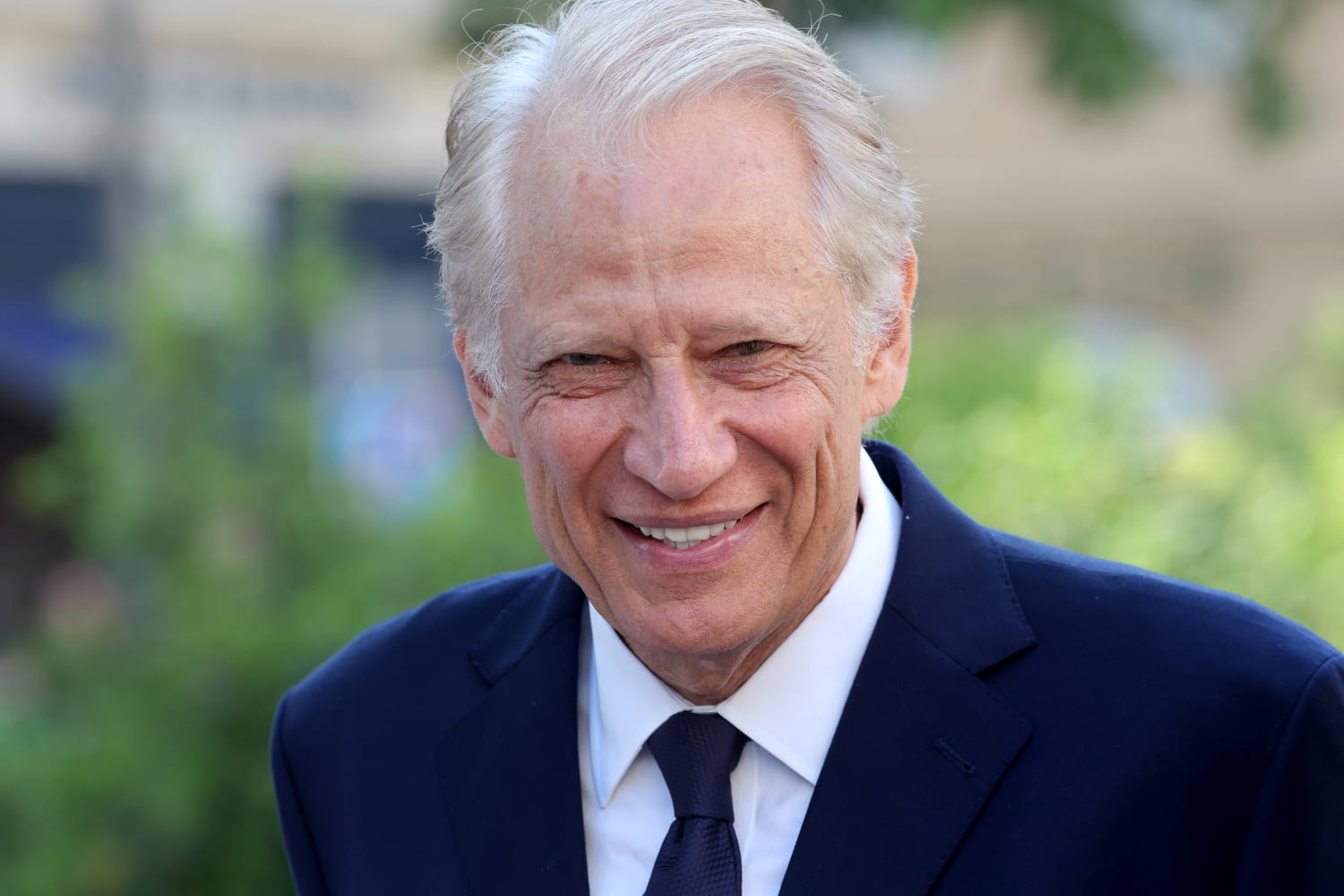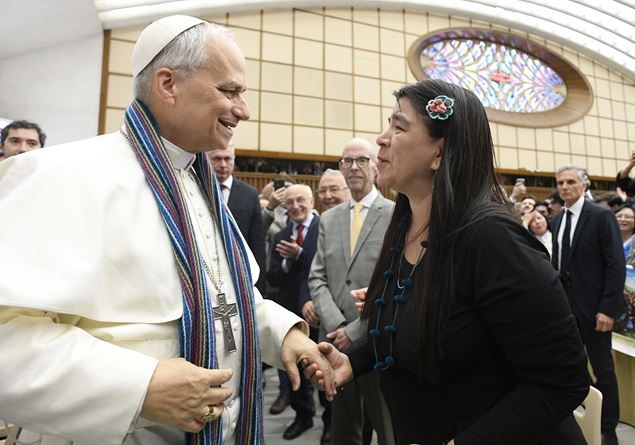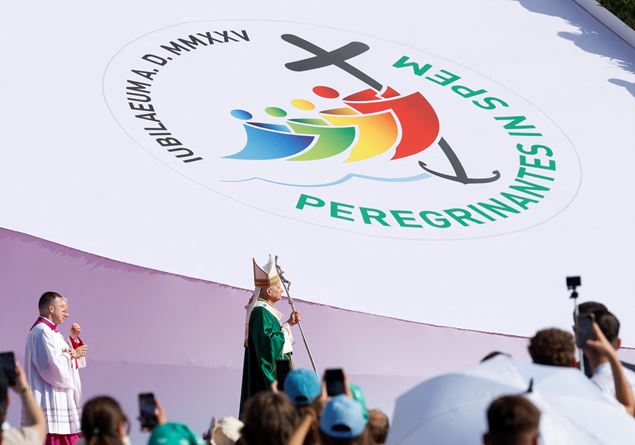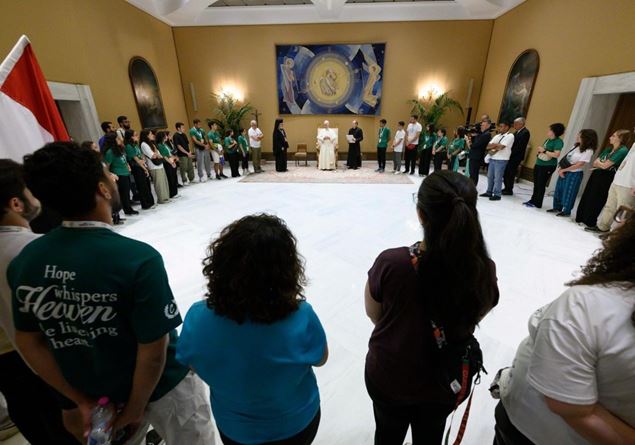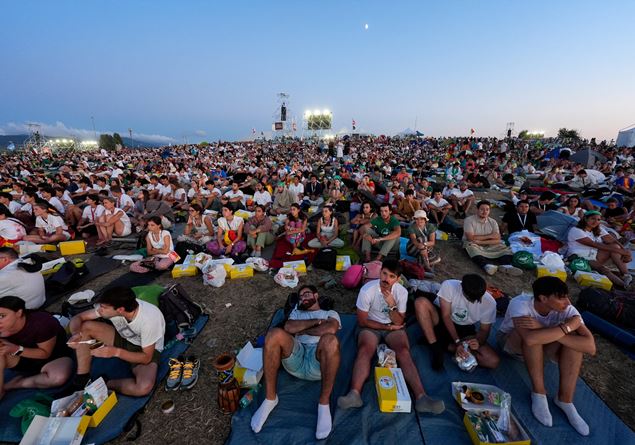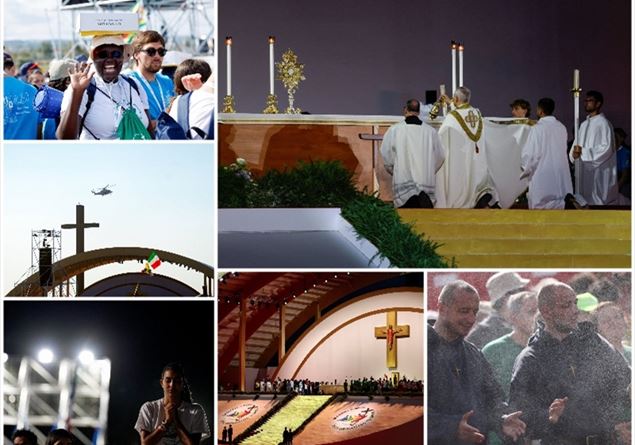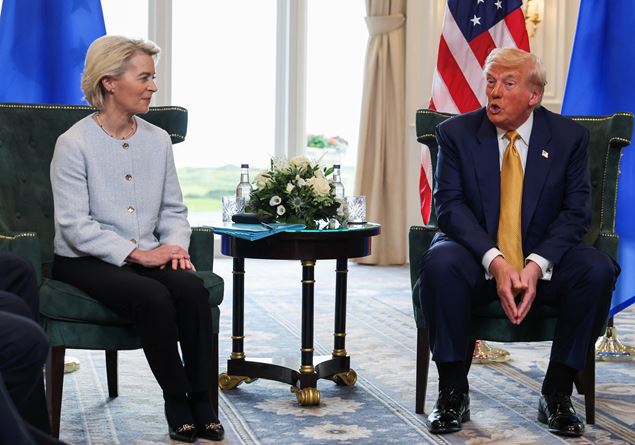At the end of the first meeting with the media operators, last Monday in the classroom Paul VI, Pope Leo XIV only reserved for some of them words and gestures of particular warmth: among these, Father Francesco Lombardi, Jesuit, former director of the Vatican press room. Much less known than him, yet treated by Prevost with as many sympathy, was Paola Ugaz, an investigative journalist Peruviana. That the former bishop of Chiclayo gave a scarf from the Andes, made with alpaca wool by poor women.
For long years UGAZ has been dealing with the “Insalitium Christianae vitae”, Powerful Peruvian religious organization, popularly known as “Sodalicio”, Loose by Pope Francis a few days before his death, after the scandals of abuse and corruption that emerged against some of his managers. Correspondent from Lima of the Spanish newspaper ABC, Ugaz has been attacked several times (also for legal streets) for his uncomfortable pieces and for the book he wrote in 2015, together with Pedro Salinas, ex-Mambro del “Sodalicio” and among his most battagliers accusers, entitled “Mitad Monjes, Mitad Soldados“(” Half monks, half soldiers “). In 2021 he won the #Iwmfcouge prize in Journalism, awarded by the International Women’s Media Foundation to the chronicians who write from dangerous areas.
Well, the day following the meeting in the classroom Paul VI, “Avvenire” He published an interview with Ugaz – signed by Lucia Capuzzi, sent to Peru – who begins with these words: «Robert Prevost, a bishop that surrender the complaints of abuse? I would have liquidated the accusation with a laugh, if it had not been an operation done by the real abusators to discredit it ». A few days earlier, it was touched at “Times” London publish this comment by Peruvian journalist on Leone XIV: “I would say that it is empathic, available and does the right thing, and I am not even Catholic”. Ugaz also underlines how the then bishop of Chiclayo, as well as vice -president of the Peruvian episcopal conference, has supported his investigation into the “Sodalicio”. Everything is also confirmed in the interview with “Avvenire”in which Ugaz declares: «I was a direct witness of the commitment and the sincere proximity to which, over the years, this shepherd has accompanied the victims. People with life reduced in shreds with suffering inflicted them and silence…. I saw him console them, spend himself for them with courage and without cameras around. Not many in Peru can say they have done the same ». Among those who fought courageously against the abuses, accompanying the victims, there is Carlos Castillo Mattasoglio, Archbishop of Lima since 2019, created Cardinal last year by Pope Francis.
The story at the center of media attention takes its cue from the complaint of three sisters who in 2022 turned to Prevost, denouncing that they had suffered abuses from two priests of his diocese. The Bishop directs the diocesan listening center and invites them to file a complaint with the prosecutor. The problem is that, at the same time, a mud machine is triggered on Prevost: the sources that we contacted in Peru – which for reasons of prudence ask to remain anonymous – agree that when the future Pope began to deal with the “Sodalicio” A campaign of revenge against him began. The facts, however, say that Prevost took seriously not only the complaints of women, but adequately took charge of the problem. In fact, he prepared the guidelines for the Peruvian episcopate and started the process for the protection of minors in the diocese, sensitizing the priests on the delicate theme, but also catechists, and parents. The preface, signed by Prevost, to the volume of Father Fidel Purisca “Vigil, Cuidado del Menor “(” Care of the minor “)published in 2022 underlines “the need to take clear and decided actions in the prevention of crimes, in the formation of pastoral workers (priests, seminarians, catechists, others who collaborate in the activities of the Church), as well as in the defense of those who have been victims of the different types of abuse”. As for the case mentioned, the Bishop suspended the priest investigated by the Ministry and set in motion a preliminary investigation, later delivered to Rome. The complaint to the Prosecutor was archived – so we read in a note from the diocese – for “prescription and lack of evidence”. In turn, the competent Roman dicastery filed because the “accusations were not sufficiently tried”.

